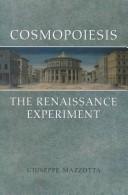
ISBN: 1282014544 9786612014543 1442673540 9781442673540 9781282014541 0802035515 0802084214 9780802035516 9780802084217 Year: 2001 Publisher: Toronto
Abstract | Keywords | Export | Availability | Bookmark
 Loading...
Loading...Choose an application
- Reference Manager
- EndNote
- RefWorks (Direct export to RefWorks)
Cosmopoiesis means world-making, and in this erudite, polemical book, Professor Mazzotta traces how major medieval and Renaissance thinkers invented their worlds through utopias, magic, science, art, and theatre. The Renaissance is usually read from a Cartesian or Hegelian (via Burckhardt) perspective. It is viewed as a time of individualities or it is studied in terms of disembodied ideas and abstract forms. Mazzotta calls for a new approach: the necessity to study the Renaissance in terms of the ongoing conversation of the arts and sciences. His is an encyclopedic grasp that takes into consideration literature, philosophy, politics, history, and theology. The book's theoretical premise lies in the thought of the eighteenth-century Italian philosopher, Giambattista Vico. Vico's own reading of the Renaissance, available in his New Science, is obliquely, yet clearly reproposed as the alternate interpretive key for opening up the deeper imaginative concerns of this extraordinary period of Western history. By a series of rigorous textual analyses that range from Poliziano to Ariosto, from Machiavelli to Bacon, to Shakespeare and Cervantes, "Cosmopoiesi"s highlights the ongoing dialogue between literature and philosophy (or literature and science, or, in Vichian terms, philology and philosophy) in some of the central texts of the time. In this dialogue across time and the barriers of space, the esthetic world - the world of the pastoral, romances, epics, utopian fictions, the theatre, and the lyric - far from signalling an evasion from history, is steadily and vitally engaged with the most pressing exigencies of the time. Consistently, the analyses conducted in "Cosmopoiesis" come to grips with these exigencies: the power of science, the relationship between politics and science, and the emergence of a new ethics in the midst of the secretive techniques by new elites in their exercise of political power. Above all, these central texts argue for a necessary reconstitution of the unity of knowledge, for the "encyclopedic" compass of the arts and sciences. The retrieval of this unity is made possible by reclaiming a role for the esthetic or contemplative mode of thought which underlies and shapes the most creative achievements in the world of making.
European literature --- Italian literature --- Philosophy, Renaissance. --- Philosophy, Modern --- Renaissance philosophy --- History and criticism. --- European literature - Renaissance, 1450-1600 - History and criticism --- Italian literature - History and criticism --- Philosophy, Renaissance --- Italienisch.
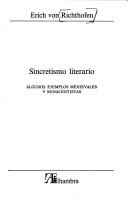
ISBN: 8420508276 9788420508276 Year: 1981 Volume: 15 Publisher: Madrid
Abstract | Keywords | Export | Availability | Bookmark
 Loading...
Loading...Choose an application
- Reference Manager
- EndNote
- RefWorks (Direct export to RefWorks)
Comparative literature --- Literature --- anno 500-1499 --- anno 1500-1599 --- Literature, Medieval --- European literature --- Comparative Literature --- History and criticism --- -European literature --- -Literature, Comparative --- Literature, Comparative --- Philology --- Medieval literature --- Comparative literature. --- Literature, Comparative. --- History and criticism. --- Literature, Medieval - History and criticism --- European literature - Renaissance, 1450-1600 - History and criticism
Book
ISSN: 21085471 ISBN: 9782812408076 2812408073 Year: 2012 Volume: 8 Publisher: Paris Classiques Garnier
Abstract | Keywords | Export | Availability | Bookmark
 Loading...
Loading...Choose an application
- Reference Manager
- EndNote
- RefWorks (Direct export to RefWorks)
Literature --- Religious studies --- anno 1400-1499 --- anno 1500-1599 --- European literature --- Religion and literature --- Littérature européenne --- Religion et littérature --- History and criticism. --- History --- Histoire et critique --- Histoire --- Littérature de la Renaissance --- Thèmes, motifs --- Littérature européenne --- Religion et littérature --- History and criticism --- Thèmes, motifs. --- Thèmes, motifs. --- European literature - Renaissance, 1450-1600 - History and criticism
Book
ISBN: 9782600017152 2600017151 Year: 2013 Volume: 521 Publisher: Genève Droz
Abstract | Keywords | Export | Availability | Bookmark
 Loading...
Loading...Choose an application
- Reference Manager
- EndNote
- RefWorks (Direct export to RefWorks)
Cet ouvrage, fruit d’un colloque international qui s’est déroulé à Dijon en mars 2012, réfléchit au thème de la région natale chez les écrivains de la Renaissance, qu’ils écrivent en latin ou en français. Il se propose de considérer l’image que ceux-ci ont laissée de leur « petite patrie », comme Cicéron qualifiait Arpinum. Tout en s’intéressant à des auteurs d’Europe du Sud (le Mantouan Battista Spagnoli, l’Espagnol Juan Luis Vivès), il fait la part belle aux écrivains de Nord, connus ou moins connus, issus de pays variés (Flamands, Germains, Ecossais, Français...). Les communications dégagent les caractéristiques d’un humanisme du nord qui, par son ancrage régional, s’affirme en opposition ou en rivalité avec l’humanisme du sud, et analysent les différentes modalités de la description de la région natale: élogieuse souvent, plus rarement critique, celle-ci est parfois «biaisée» (la «petite patrie» n’est pas le lieu de naissance mais un autre lieu), voire refusée (en particulier par les auteurs protestants). L’ensemble se présente comme un vaste aperçu de l’image qu’ont laissée de leur région natale une trentaine d’auteurs de genres littéraires divers, de pays divers, de confessions diverses, mais qui tous témoignent du caractère très riche de ce motif pour une herméneutique de leurs oeuvres..
Thematology --- French literature --- anno 1500-1599 --- European literature --- Homeland in literature --- History and criticism --- Littérature européenne --- Patrie dans la littérature --- Littérature française --- Histoire et critique --- Thèmes, motifs --- European literature - Renaissance, 1450-1600 - History and criticism - Congresses --- Homeland in literature - Congresses --- French literature - 16th century - History and criticism - Congresses --- Littérature européenne --- Patrie dans la littérature --- Littérature française --- Thèmes, motifs
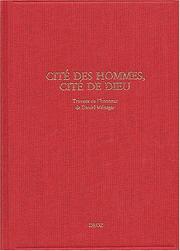
ISBN: 2600008241 9782600008242 Year: 2003 Volume: 375 Publisher: Genève Droz
Abstract | Keywords | Export | Availability | Bookmark
 Loading...
Loading...Choose an application
- Reference Manager
- EndNote
- RefWorks (Direct export to RefWorks)
French literature --- anno 1500-1599 --- European literature --- Renaissance. --- History and criticism. --- 840 "15" --- 2 "15" --- Franse literatuur--?"15" --- Godsdienst. Theologie--?"15" --- 840 "15" Franse literatuur--?"15" --- History and criticism --- Renaissance --- Revival of letters --- Civilization --- History, Modern --- Civilization, Medieval --- Civilization, Modern --- Humanism --- Middle Ages --- History --- European literature - Renaissance, 1450-1600 - History and criticism.
Book
ISBN: 0300022638 9780300022636 Year: 1978 Publisher: New Haven, Conn. Yale University Press
Abstract | Keywords | Export | Availability | Bookmark
 Loading...
Loading...Choose an application
- Reference Manager
- EndNote
- RefWorks (Direct export to RefWorks)
Literary rhetorics --- anno 1500-1599 --- European literature --- Rhetoric --- Littérature européenne --- Rhétorique --- History and criticism --- History --- Histoire et critique --- Histoire --- Rhetoric, Renaissance --- 82.085 --- 87.085 --- -Rhetoric, Renaissance --- Renaissance rhetoric --- Retorica. Argumentatieleer. Voordrachtkunst --- Klassieke literatuur: retorica --- Rhetoric, Renaissance. --- History and criticism. --- 87.085 Klassieke literatuur: retorica --- 82.085 Retorica. Argumentatieleer. Voordrachtkunst --- Littérature européenne --- Rhétorique --- European literature - Renaissance, 1450-1600 - History and criticism
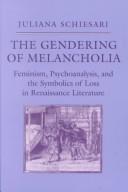
ISBN: 0801499712 0801426863 9780801499715 9780801426865 Year: 1992 Publisher: Ithaca: Cornell university press,
Abstract | Keywords | Export | Availability | Bookmark
 Loading...
Loading...Choose an application
- Reference Manager
- EndNote
- RefWorks (Direct export to RefWorks)
Thematology --- Psychological study of literature --- anno 1500-1599 --- Depression, Mental, in literature --- European literature --- Feminism and literature --- Grief in literature --- Loss (Psychology) in literature --- Psychoanalysis and literature --- History and criticism --- European literature - Renaissance, 1450-1600 - History and criticism --- Melancolie --- Psychanalyse et litterature --- Feminisme et litterature --- Litterature europeenne --- Renaissance, 1450-1600 --- Histoire et critique
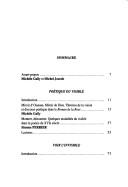
ISSN: 12551015 ISBN: 2902126174 9782902126170 9791036203503 Year: 1995 Volume: *3 Publisher: Fontenay-aux-Roses : Paris : E.N.S., Editions Ophrys,
Abstract | Keywords | Export | Availability | Bookmark
 Loading...
Loading...Choose an application
- Reference Manager
- EndNote
- RefWorks (Direct export to RefWorks)
Literature, Medieval --- European literature --- Visual perception in literature. --- Description (Rhetoric) --- History and criticism. --- Renaissance, 1450-1600 --- Description (Rhetoric). --- French literature --- To 1500 --- History and criticism --- 16th century --- Literature, Medieval - History and criticism. --- European literature - Renaissance, 1450-1600 - History and criticism. --- ANTHROPOLOGIE CULTURELLE --- REGARD --- HISTOIRE CULTURELLE --- EUROPE --- HISTOIRE --- 12E-16E SIECLES
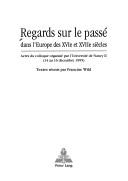
ISBN: 3906754774 9783906754772 Year: 1997 Publisher: Bern ; Berlin ; Paris P. Lang
Abstract | Keywords | Export | Availability | Bookmark
 Loading...
Loading...Choose an application
- Reference Manager
- EndNote
- RefWorks (Direct export to RefWorks)
History --- European literature --- Histoire --- Littérature européenne --- Philosophy --- Congresses --- History and criticism --- Philosophie --- Congrès --- Histoire et critique --- Europe --- Civilization --- Civilisation --- Tradition (Philosophy) --- Congresses. --- Littérature européenne --- Congrès --- 16th century --- 17th century --- 1450-1600 (Renaissance) --- European literature - Renaissance, 1450-1600 - History and criticism - Congresses. --- Tradition (Philosophy) - Congresses.
Book
ISBN: 2921053748 9782921053747 Year: 1997 Publisher: Québec Nuit blanche
Abstract | Keywords | Export | Availability | Bookmark
 Loading...
Loading...Choose an application
- Reference Manager
- EndNote
- RefWorks (Direct export to RefWorks)
873.4 DE LA RAMEE, PIERRE --- Humanistisch Latijnse literatuur--DE LA RAMEE, PIERRE --- 873.4 DE LA RAMEE, PIERRE Humanistisch Latijnse literatuur--DE LA RAMEE, PIERRE --- Rhetoric, Renaissance --- European literature --- Humanists --- History and criticism --- Theory, etc --- Ramus, Petrus, --- Criticism and interpretation --- European literature - Renaissance, 1450-1600 - History and criticism - Theory, etc --- Ramus, Petrus, - 1515-1572 - Criticism and interpretation --- Ramus, Petrus, - 1515-1572

 Search
Search Feedback
Feedback About UniCat
About UniCat  Help
Help News
News